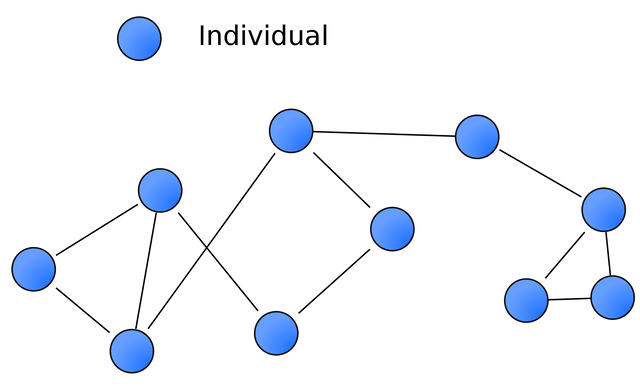
Human-based computation games
Human-based computation games are a very intriguing yet under discussed concept. I'm introducing this concept in order to encourage discussion of how these techniques can be integrated into Steem or Steemit. In previous posts I mentioned alternate reality games and human computation but in order to fully grasp the potential of those concepts I've decided it might be helpful to first elaborate on the concept of the human-based computation game.

The purpose of human computation in the general sense is to solve the problems which are too hard for AI. This human computation combines with AI in a social computer. A human-based computation game works by making it fun for the human beings to contribute their computation to the social computer. There are many possible examples of this and some from Wikipedia are in the quotes below:
Phrase detectives
Phrase Detectives is an "annotation game" geared towards lovers of literature, grammar and language. It lets users indicate relationships between words and phrases to create a resource that is rich in linguistic information. Players are awarded with points for their contributions and are featured on a leader board.[25] It was developed by academics Jon Chamberlain, Massimo Poesio and Udo Kruschwitz at the University of Essex.
The ESP game
The first example was the ESP game, an effort in human computation originally conceived by Luis von Ahn of Carnegie Mellon University, which labels images. To make it an entertaining effort for humans, two players attempt to assign the same labels to an image. The game records the results of matches as image labels and the players enjoy the encounter because of the competitive and timed nature of it. To ensure that people do their best to accurately label the images, the game requires two people (chosen at random and unknown to each other), who have only the image in common, to choose the same word as an image label. This discourages vandalism because it would be self-defeating as a strategy. The ESP game is a human-based computation game developed to address the problem of creating difficult metadata. The idea behind the game is to use the computational power of humans to perform a task that computers cannot (originally, image recognition) by packaging the task as a game. It was originally conceived by Luis von Ahn of Carnegie Mellon University. Google bought a licence to create its own version of the game (Google Image Labeler) in 2006 in order to return better search results for its online images.[19] The license of the data acquired by Ahn's ESP Game, or the Google version, is not clear.[clarification needed] Google's version was shut down on 16 September 2011 as part of the Google Labs closure in September 2011.
What is social computing?

Social computers utilize human computation and human interaction to compute. For example auctions will compute the price for rare pieces of art, but it's also similar to the mechanism behind Subjective Proof of Work which requires human computation to determine the current value of a piece of content to the active participants in the crowd. This is typically called collaborative filtering and is a collaborative form of human computation.
Best practices:
Steemit could be classified as a kind of social computer because it curates all content. It's a content generating and curating social computer. But there is potential to go far beyond this and build a general purpose social computer using the same Graphene blockchain with a virtual machine extension and something like Crowdlang.
What is a Crowdlang?
Crowdlang is a language to allow for a more formal method of creating social computers. In specific, the crowd lang is a way of using incentive design patterns to direct the crowd to complete specific tasks. This is how you can program the "global brain" in the context of a social computer. People may want money, fame, or and fun, while an AI doesn't require these incentives. It is important for activities involving humans to reward the humans and remain fun in order to maintain high and long term engagement.
Several decentralized social computers are in development
There is a project called Ceptr which may in fact be a social computer. There is a project called Synereo which also may be a social computer. And of course there is Steem which we all know about. Steem beat these other projects to the punch of these other projects are much more ambitious in terms of their ability to do social computing. This ambition is why we may not see Synereo or Ceptr until 2017 but when we do, these projects could be the Facebook killers and likely will have a huge impact on the cryptospace.
It will be trivial to do something lik Crowdlang on top of Synereo or Ceptr if they actually follow through on their promises. Steem will be able to do it too but it may not be as trivial to do it. Fortunately Steem has first mover advantage in the fact that it will very likely have millions of users next year when other competitors come online.
References
Web 1. http://ceptr.org/
Web 2. https://www.synereo.com/
Web 3. https://en.wikipedia.org/wiki/Human-based_computation_game
Web 4. http://www.ifi.uzh.ch/en/ddis/research/CrowdLang.html
Kucherbaev, P., Daniel, F., Tranquillini, S., & Marchese, M. (2016). Crowdsourcing processes: a survey of approaches and opportunities. IEEE Internet Computing, 20(2), 50-56.
Luczak-Roesch, M., Tinati, R., Aljaloud, S., Hall, W., & Shadbolt, N. (2016, June). A Universal Socio-Technical Computing Machine. In International Conference on Web Engineering (pp. 559-562). Springer International Publishing.
Thanks Dana for this article and for mentioning Ceptr. If you think of a given social "computation" as a protocol, then you can think of Ceptr as providing a protocol for protocols, which includes the ability to compose existing protocols to build new ones. So yes, very ambitious, but with an extremely high leverage potential.
Downvoting a post can decrease pending rewards and make it less visible. Common reasons:
Submit
Awesome article!Super informative.I was aware of only half of this,which is rare. Some words have diappeared though.Editing is a pain.
Downvoting a post can decrease pending rewards and make it less visible. Common reasons:
Submit
I fixed that. I don't know how that happened but fortunately I make sure to read over my posts several times just in case. Thanks for alerting me to the missing words.
Downvoting a post can decrease pending rewards and make it less visible. Common reasons:
Submit
THanks for thanking me for alerting you to the missing words!LOL . And seriously,thanks for the upvote,it is one of my highest earning on steemit so far..
Downvoting a post can decrease pending rewards and make it less visible. Common reasons:
Submit
Thanks for this fascinating piece. Wondering what it would take to do Crowdlang on top of Steem.
Downvoting a post can decrease pending rewards and make it less visible. Common reasons:
Submit
super and informative
Downvoting a post can decrease pending rewards and make it less visible. Common reasons:
Submit
wow dam that was really interesting thank you so much for your post learning something new every day :) i love steemit
Downvoting a post can decrease pending rewards and make it less visible. Common reasons:
Submit
In future computer all we use , no more cash in hand , everyone know how to scripting , simple words everybody will know how to fix their own computer at home no need engineer to change their work desktop wallpaper .
Downvoting a post can decrease pending rewards and make it less visible. Common reasons:
Submit
Whaaat? Did I just learned something and had fun??
Great post Dana :) ! Completely new to - at least the term.
... and although I´m a complete Compute noob, I understood what you were talking about. - You have my UpVote!
Chris.Roy
Downvoting a post can decrease pending rewards and make it less visible. Common reasons:
Submit
At what point does Skynet become self aware? ;)
Downvoting a post can decrease pending rewards and make it less visible. Common reasons:
Submit
kwnolegde griven, great article
Downvoting a post can decrease pending rewards and make it less visible. Common reasons:
Submit
meep
Downvoting a post can decrease pending rewards and make it less visible. Common reasons:
Submit